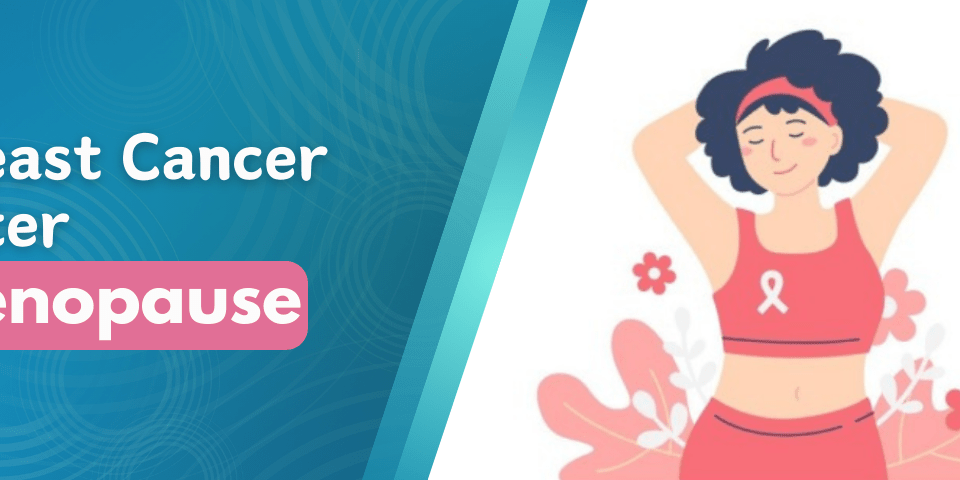Breast tenderness after menopause is a significant concern, despite being uncommon. Cancer becomes more common in women after menopause, especially in those aged 45 and older, making up about two-thirds of cases. The key to fighting breast cancer is catching it early. Early checks and advice on getting personal mammograms are crucial. They help find breast cancer at a stage when it’s easier to treat and cure.
Meet Dr. Garvit Chitkara, a top breast cancer surgeon based in Mumbai. He’s a Senior Consultant in Breast Surgical Oncology and Oncoplasty at Nanavati Max Institute of Cancer Care, part of Nanavati Max Super Specialty Hospital.
Taking care of our health is crucial, especially understanding and acting on breast cancer risks. Dr. Chitkara is an expert in detecting breast cancer early, making him an important ally for women, particularly after menopause, in their quest for breast health.
Take control of your health post-menopause – tackle breast cancer with informed decisions. Contact us today!
Early signs of breast cancer during menopause
Keep an eye out for these signs as they could indicate breast cancer during menopause:
Lump or Thickening: Feel for any unusual lumps or thickened areas in your breast or underarm.
Changes in Size or Shape: Notice if your breast size or shape suddenly changes.
Unexplained Pain: Be alert to ongoing breast pain or tenderness without a clear reason.
Changes in Skin: Watch for skin changes like redness, dimpling, or puckering on your breast.
Nipple Changes: Check for nipple changes like inversion, discharge (other than breast milk), or new pain.
Remember, it’s important to tell your healthcare provider about any unusual changes. Doing regular self-exams and getting routine mammograms is crucial for finding any issues early during menopause.

Wondering about the hereditary aspect of breast cancer? Get informed and take proactive steps for your health. Contact us today for personalised insights and support!
Is it hereditary ?
Yes, family history can affect your risk of breast cancer. If your close relatives, like your family members like your mother, father, brother sister grand parents, uncles aunts or cousins , have had breast cancer or other cancers like ovary, pancreas or prostate etc , especially if they were young, you might have a higher risk. But, remember, most people with breast cancer don’t have it in their family history.

Deleterious mutations in Genes called BRCA1 and BRCA2 etc. can increase your risk for breast and ovarian cancer. It’s a good idea to talk to your doctor about whether you should get genetic testing based on your family’s history.
Even if you have a family history, many people who get breast cancer didn’t know they were at risk. Regular check-ups and a healthy lifestyle can help reduce your cancer risk. Discuss with your doctor about a diet and health plan that considers your family history and personal health.
Exploring lifestyle-related risk factors for breast cancer? Take charge of your health by understanding these factors. Contact us today to learn more and make informed choices for a healthier lifestyle!
Lifestyle related breast cancer risk factors
Reduce your risk of breast cancer after menopause with these lifestyle choices:
Physical Activity: Stay active to lower your risk. Regular exercise is important. Any exercise that is 40 mins a day atleast 5 days in a week reduce your breast cancer risk considerably.
Alcohol Consumption: Limit alcohol intake, as even moderate drinking can increase the risk.
Weight Management: Maintain a healthy weight through a balanced diet and exercise to reduce the risk.

Hormone Replacement Therapy (HRT): Long-term use, especially with estrogen and progesterone combined, may increase risk. Discuss with your doctor.
Smoking: While not as strong as with some cancers, smoking can still contribute to an increased risk.
Breastfeeding: It may slightly lower the risk, benefiting both mom and baby.
Remember, these healthy choices significantly impact your well-being and reduce breast cancer risk. Consult healthcare professionals for personalized advice based on your health profile.
How is breast cancer after menopause diagnosed?
Clinical Breast Exam (CBE): Your doctor checks your breasts for lumps or changes.
Mammography: An X-ray of the breast that can spot tumors you can’t feel.
Ultrasound: Uses sound waves to make pictures of the breast, showing if a lump is solid or filled with fluid.

Biopsy: If there’s something unusual, a small piece of tissue is taken to check for cancer cells.
MRI (Magnetic Resonance Imaging): Sometimes used to get more detailed images of the breast.
Regular check-ups and being alert to any changes in your breasts are key, especially if you’re postmenopausal. Talk to your doctor about your risk and how often you should have these tests for early detection and prevention.
Navigating breast cancer diagnosis after menopause? Take control of your health journey. Contact us today for expert support and guidance tailored to your needs!
Latest advancements in breast cancer treatment
Immunotherapy:
Exploring drugs like pembrolizumab to boost the immune response against certain breast cancers.
Targeted Therapies:
Uses medications like palbociclib and ribociclib with hormone therapy for hormone receptor-positive breast cancers.
Precision Medicine:
Uses genetic testing to find tumor mutations. It allows personalized treatment plans, including drugs like olaparib for BRCA mutations. Genomic risk profiling of the tumours can also be done for certain cases which help to find out what is the benefit of chemotherapy in these patients. In hormone positive cancers in post menopasusal age group it is now possible to avoid chemotherapy in even node positive patients.
Adjuvant Therapies:
Advancements in post-surgery radiation and chemotherapy aim to reduce cancer recurrence and enhance outcomes.
Neoadjuvant Therapy:
Uses chemotherapy or targeted therapy before surgery. helps shrink tumors for less invasive procedures.
HER2-Targeted Therapies:
Ongoing progress in treating HER2-positive breast cancer with promising drugs like trastuzumab deruxtecan.
Navigating breast cancer diagnosis after menopause? Take control of your health journey. Contact us today for expert support and guidance tailored to your needs!
Conclusion
Great progress has been made in treating breast cancer. New treatments like immunotherapy and precision medicine are now used. These treatments are tailored to each person, making them more effective. Surgery methods have improved too, focusing on less invasive ways for quicker recovery.
Looking ahead, more research and focusing on care tailored to each patient will help improve breast cancer outcomes. This progress is encouraging for both patients and doctors working in cancer care.
FAQs:
Q. Who is at high risk of breast cancer after menopause?
A. Individuals with a family history of breast cancer, particularly first-degree relatives, are at a higher risk.
Q. How can I prevent breast cancer after menopause?
A. Maintaining a healthy weight, engaging in regular physical activity, and scheduling routine screenings can aid in preventing breast cancer after menopause.
Q. What foods prevent breast cancer?
A. A diet abundant in fruits, vegetables, whole grains, and low in processed foods is associated with a lower risk of breast cancer.
Reference link : https://www.webmd.com/menopause/breast-cancer-menopause

